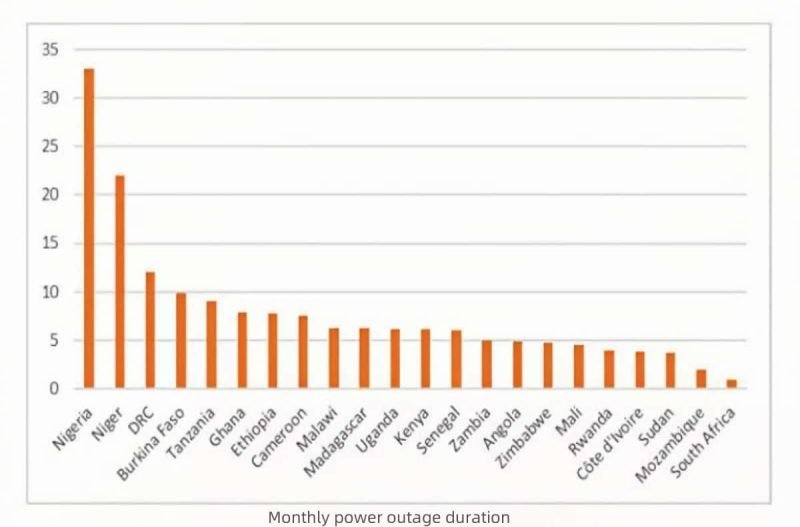Photovoltaic Solar Energy: The Heart of Green Energy in Africa
Africa is renowned for its abundant renewable energy resources, such as solar and wind power. The vast sunlight exposure in the Sahara Desert offers ideal conditions for the development of photovoltaic energy, while the continent’s extensive coastline provides perfect opportunities for offshore wind energy. These natural resources lay a solid foundation for Africa to implement green electricity solutions.
While some African countries, such as South Africa, Nigeria, Libya, Algeria, and Angola, have rich reserves of coal, oil, and natural gas, the majority of the continent still relies heavily on imported fossil fuels. Due to limited refining capabilities, major oil-producing countries like Nigeria and Angola also depend on imports for refined oil products. This reliance places a significant cost burden on most African nations’ traditional energy sectors. The outbreak of the Russia-Ukraine conflict in 2022, along with the loosening of monetary policies in Western countries, led to a surge in global energy prices, severely impacting Africa’s economic development.
At the same time, the cost of renewable energy generation in Africa continues to decline. In some regions, the cost of renewable energy generation has already fallen below that of traditional energy sources, signaling that future renewable energy costs will further decrease. For countries with unstable electricity supply, businesses often rely on diesel generators, which can cost as much as $1 per kWh. In contrast, the widespread use of renewable energy is not only economically feasible but also helps protect African economies from the volatility of global energy prices, offering a more sustainable, reliable, and secure foundation for socio-economic development.

Currently, several villages in Africa have successfully established photovoltaic power systems, enabling local residents to use electricity for lighting at night, cooking, and heating. Even healthcare centers can use simple electrical medical equipment to care for patients. These projects have significantly improved the quality of life for local residents and greatly contributed to the region’s economic and social development.
Under the framework of China-Africa cooperation, more than 100 green energy projects have been established, injecting new vitality into Africa’s green transformation. Zimbabwean economist Brain Machemwa pointed out that Africa has greatly benefited from China’s green energy industry, especially from affordable and high-quality products like solar panels and batteries.

Rhoda Vachera, an official from the United Nations Environment Programme, stated that cooperation with China has allowed African nations to access advanced technologies and support, which is crucial for the success of their energy transition. At the 28th Conference of the Parties to the United Nations Framework Convention on Climate Change (COP28), both China and Africa advanced the promotion of small-scale innovative clean energy projects, focusing primarily on small and medium-sized solar projects in underdeveloped regions of Africa.
Yang Baorong, Director of the Economic Research Office of the Institute of West Asian and African Studies at the Chinese Academy of Social Sciences, emphasized that China’s provision of high-quality, affordable green energy technologies and products has made it possible for more African people to benefit. China-Africa green energy cooperation will help transform Africa’s vast resource potential into tangible economic growth, further enhancing the continent’s development in the renewable energy sector. Together, China and Africa are addressing the challenges of climate change and moving toward a cleaner, more sustainable, and prosperous future.

